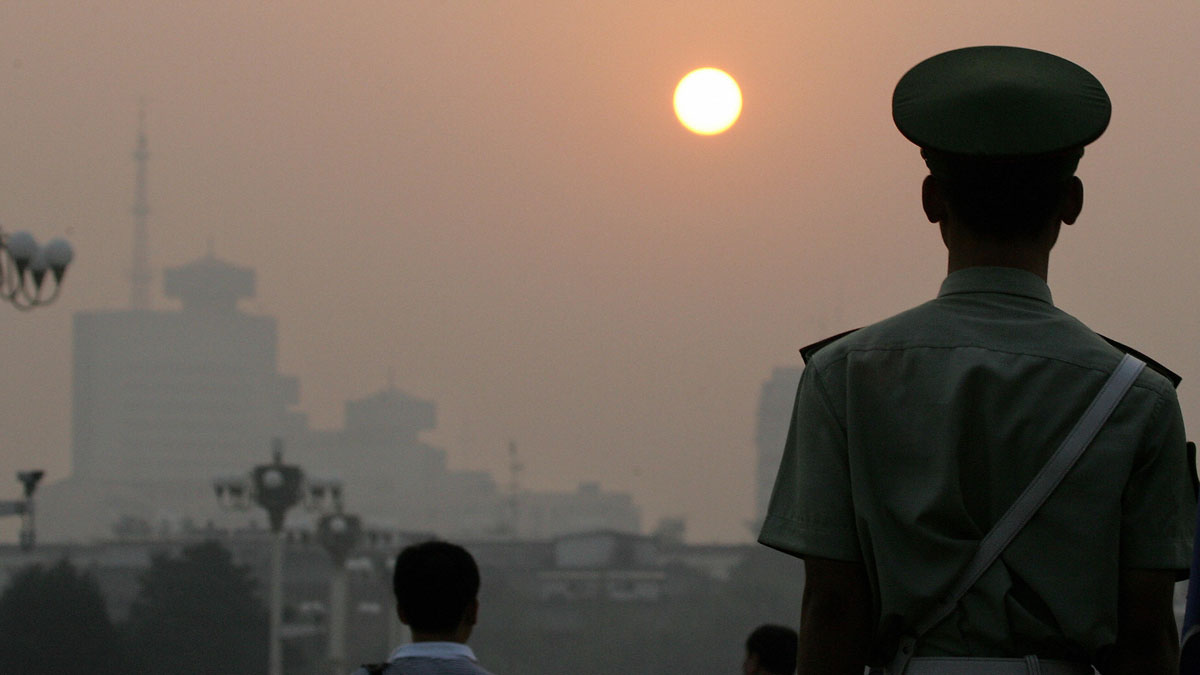Concerns grow over China's 'nightmarish' social credit score system
National database will be set up to rate each citizen's trustworthiness – but does it go too far?

A free daily email with the biggest news stories of the day – and the best features from TheWeek.com
You are now subscribed
Your newsletter sign-up was successful
China is preparing to introduce a controversial credit score system which ranks each citizen's trustworthiness based on a variety of financial and social factors.
The Social Credit System (SCS) is still in its trial stages, with the government planning on creating a national database by the end of 2020.
Citizens and organisations will be ranked not just on their financial reliability but also on their social interactions and consumer spending, the BBC's Celia Hatton reports. This information will then be shared between public institutions.
The Week
Escape your echo chamber. Get the facts behind the news, plus analysis from multiple perspectives.

Sign up for The Week's Free Newsletters
From our morning news briefing to a weekly Good News Newsletter, get the best of The Week delivered directly to your inbox.
From our morning news briefing to a weekly Good News Newsletter, get the best of The Week delivered directly to your inbox.
The exact details remain unclear, but the system reportedly takes a variety of things into account, including points on a person's driving licence, products they buy and how they are evaluated at work.
Rogier Creemers, who studies Chinese media policy and political change at the University of Oxford, agrees that the planned measures go well beyond establishing financial creditworthiness.
"All that behaviour will be integrated into one comprehensive assessment of you as a person, which will then be used to make you eligible or ineligible for certain jobs, or social services," he told the New Scientist.
One of the main pilot projects is currently being run by Sesame Credit, a subsidiary of the Chinese e-commerce giant Alibaba. Perhaps most controversially, the company openly admits that it judges the types of products shopper buy online, the BBC says.
A free daily email with the biggest news stories of the day – and the best features from TheWeek.com
"Someone who plays video games for ten hours a day, for example, would be considered an idle person, and someone who frequently buys diapers would be considered as probably a parent, who on balance is more likely to have a sense of responsibility," said Li Yingyun, Sesame's technology director.
The company then rewards people with high credit scores with perks such as a prominent dating profile on the Baihe matchmaking site to VIP reservations with hotels and car rental companies.
The system has prompted criticism from many outside of the country, including American Civil Liberties Union policy analyst Jay Stanley, who labelled the programme "nightmarish".
But others believe an innovative and comprehensive credit rating system is sorely needed in China. "Many people don't own houses, cars or credit cards in China, so that kind of information isn't available to measure," explains technology blogger Wen Quan.
Creemers, who was responsible for translating publicly released documents about the SCS, said the Big Brother fears raised about the system are typical of Western media's coverage of China.
"Pretty much anything China does makes people panicked," he said. "And many times we don't recognise that we are doing similar things."
-
 Local elections 2026: where are they and who is expected to win?
Local elections 2026: where are they and who is expected to win?The Explainer Labour is braced for heavy losses and U-turn on postponing some council elections hasn’t helped the party’s prospects
-
 6 of the world’s most accessible destinations
6 of the world’s most accessible destinationsThe Week Recommends Experience all of Berlin, Singapore and Sydney
-
 How the FCC’s ‘equal time’ rule works
How the FCC’s ‘equal time’ rule worksIn the Spotlight The law is at the heart of the Colbert-CBS conflict
-
 Epstein files topple law CEO, roil UK government
Epstein files topple law CEO, roil UK governmentSpeed Read Peter Mandelson, Britain’s former ambassador to the US, is caught up in the scandal
-
 Iran and US prepare to meet after skirmishes
Iran and US prepare to meet after skirmishesSpeed Read The incident comes amid heightened tensions in the Middle East
-
 Israel retrieves final hostage’s body from Gaza
Israel retrieves final hostage’s body from GazaSpeed Read The 24-year-old police officer was killed during the initial Hamas attack
-
 China’s Xi targets top general in growing purge
China’s Xi targets top general in growing purgeSpeed Read Zhang Youxia is being investigated over ‘grave violations’ of the law
-
 Panama and Canada are negotiating over a crucial copper mine
Panama and Canada are negotiating over a crucial copper mineIn the Spotlight Panama is set to make a final decision on the mine this summer
-
 Why Greenland’s natural resources are nearly impossible to mine
Why Greenland’s natural resources are nearly impossible to mineThe Explainer The country’s natural landscape makes the task extremely difficult
-
 Iran cuts internet as protests escalate
Iran cuts internet as protests escalateSpeed Reada Government buildings across the country have been set on fire
-
 US nabs ‘shadow’ tanker claimed by Russia
US nabs ‘shadow’ tanker claimed by RussiaSpeed Read The ship was one of two vessels seized by the US military